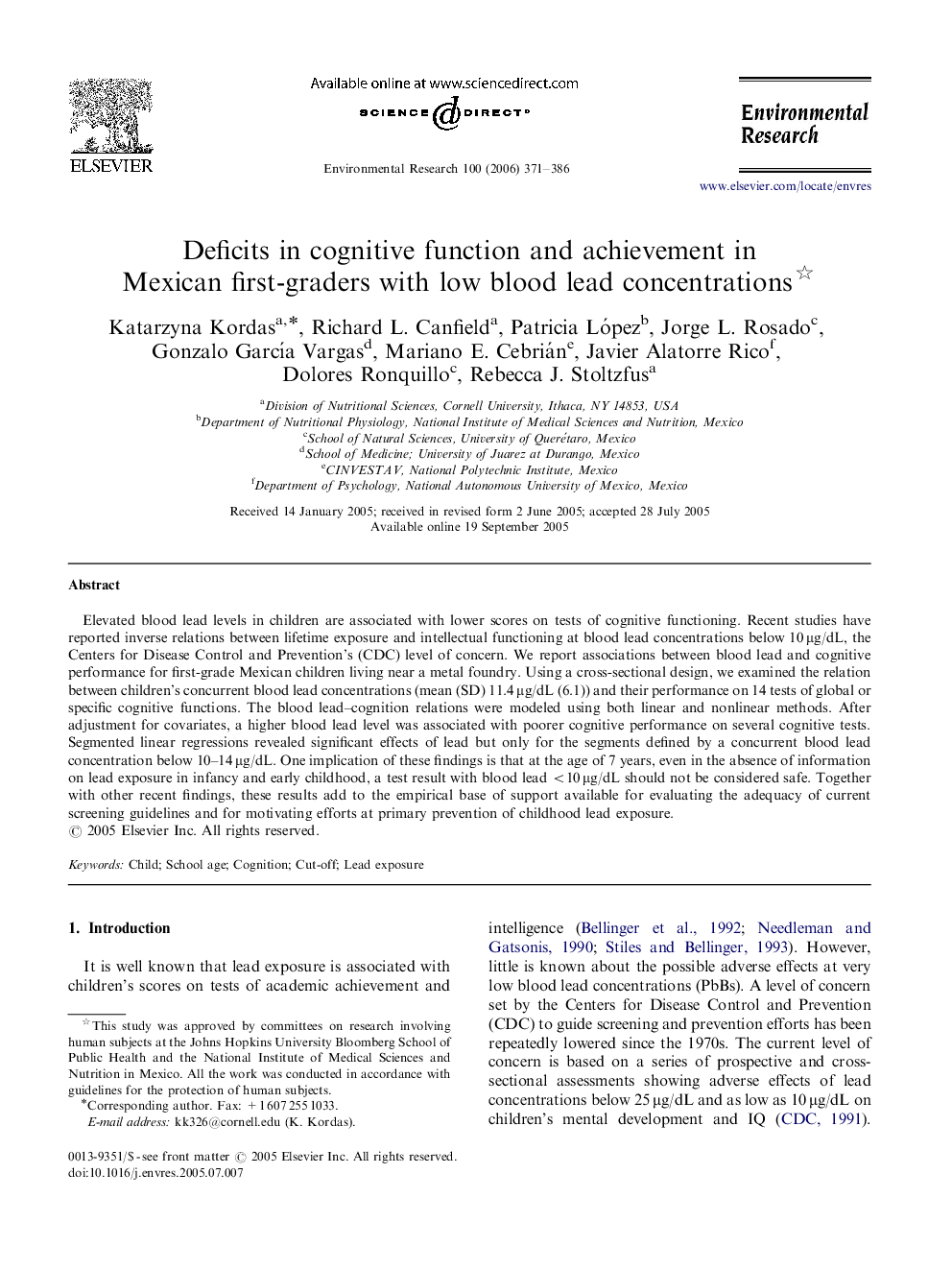| کد مقاله | کد نشریه | سال انتشار | مقاله انگلیسی | نسخه تمام متن |
|---|---|---|---|---|
| 4471063 | 1622591 | 2006 | 16 صفحه PDF | دانلود رایگان |

Elevated blood lead levels in children are associated with lower scores on tests of cognitive functioning. Recent studies have reported inverse relations between lifetime exposure and intellectual functioning at blood lead concentrations below 10 μg/dL, the Centers for Disease Control and Prevention's (CDC) level of concern. We report associations between blood lead and cognitive performance for first-grade Mexican children living near a metal foundry. Using a cross-sectional design, we examined the relation between children's concurrent blood lead concentrations (mean (SD) 11.4 μg/dL (6.1)) and their performance on 14 tests of global or specific cognitive functions. The blood lead–cognition relations were modeled using both linear and nonlinear methods. After adjustment for covariates, a higher blood lead level was associated with poorer cognitive performance on several cognitive tests. Segmented linear regressions revealed significant effects of lead but only for the segments defined by a concurrent blood lead concentration below 10–14 μg/dL. One implication of these findings is that at the age of 7 years, even in the absence of information on lead exposure in infancy and early childhood, a test result with blood lead <10 μg/dL should not be considered safe. Together with other recent findings, these results add to the empirical base of support available for evaluating the adequacy of current screening guidelines and for motivating efforts at primary prevention of childhood lead exposure.
Journal: Environmental Research - Volume 100, Issue 3, March 2006, Pages 371–386